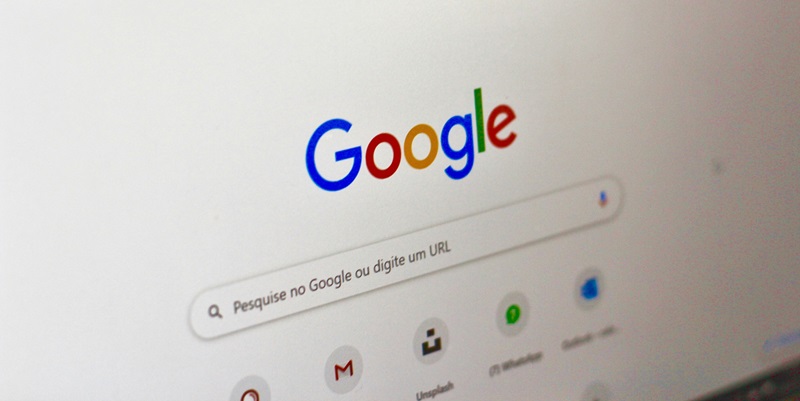The evolution of Google Search through artificial intelligence (AI) is a testament to the power of technological advancement in the landscape of digital information retrieval. Imagine a time when search engines could scarcely grasp the complexity of human language, leaving users with results that only scratched the surface of their queries. But now, AI has bestowed upon Google Search an ability to not only understand but to predict and personalize the vast sea of data it deals with daily. This article delves into the facets of AI that have revolutionized Google Search, making it a tool of unprecedented efficiency and intelligence.
BERT and the Understanding of Context
In the not-so-distant past, typing a query into Google was a game of keyword bingo. The search engine would dissect the query into individual terms, often disregarding the nuanced context they were used in. Enter BERT— the Bidirectional Encoder Representations from Transformers algorithm— in 2019, a turning point that marked a shift toward contextual understanding. BERT could decipher the intent behind our words, considering the entire sentence to provide answers that felt like they were plucked from a human mind. Complex inquiries that would have once stumped the search engine now yield rich, accurate results, making the search process more aligned with our natural way of questioning.
This innovation effectively bridged the gap between the cryptic, keyword-focused queries and the genuinely conversational manner in which people can now interact with Google. Suddenly, it’s not just about the words you use but how you phrase them— the subtleties, the implications, and the unspoken nuances. With such remarkable progress in contextual understanding, users enjoy a more seamless and intuitive search experience that stands in stark contrast to the mechanical interactions of the past.
Personalizing Search Results Through Machine Learning
AI doesn’t stop at understanding context; it goes one step further by tailoring the search experience to each user. Through machine learning, Google has become adept at recognizing patterns within an individual’s search habits, preferences, and history. This personal touch is predominantly evident in local searches. Say you’re looking for a “cafe near you in Monaco”; the results not only consider the proximity but also weigh in on your past choices and preferences. This customized curation of search results means that two different people querying the same thing could receive completely different results, each aligned with their unique tastes and habits.
No longer are users presented with a one-size-fits-all list of search results. Instead, they receive a curated selection, a unique dossier of virtual content woven from threads of their digital persona. The AI-driven personalization of search results has profound implications, especially for businesses looking to reach their target audience more effectively. This personalized approach proves beneficial to users too, who can find what they need faster and with more relevance to their personal context.
Combating Misinformation with AI
The digital realm is not without its perils; misinformation proliferates just as rapidly as factual content. AI has become Google’s stalwart defender against this tide of unreliable information. Machine learning algorithms prudently assess sources’ credibility, demoting content with questionable accuracy. By evaluating an array of signals— the quality of the website, its reputation, and the history of the publisher— Google’s AI works diligently to ensure that the top search results users see are not only relevant but reliable.
Preventing the spread of fake news and unsubstantiated claims is no easy feat in an era defined by its online discourses. AI’s critical eye in sifting through content places a virtual gatekeeper between users and the vast digital misinformation landscape. This rigorous process ensures that the search results maintain their integrity, a mission ever-important in our world where the truth often dangles precariously amid a web of falsehoods.
Visual Search: A New Horizon
AI’s transformative power in Google Search is not confined to textual content; it reaches into the visual realm. With applications like Google Lens, users can now leverage images to conduct searches, harnessing the might of computer vision and deep learning. This extends the functionality of search beyond text, allowing users to, for example, take a picture of a landmark to learn about its history, or scan a document in a foreign language for instant translation.
The implications of such visual search capabilities are vast. A student can identify an unknown species of flora with a simple picture, a traveler can understand signposts in a foreign country, and a homeowner can find a matching piece to their broken appliance—all with the click of a camera. Such functionalities would have been the stuff of science fiction not long ago, but today, they are a testament to the powerful synergy between AI and our everyday information needs.
The Future of AI-Powered Search
Google Search’s transformation through artificial intelligence (AI) highlights the incredible progress in digital data search technology. There was an era when search engines barely managed to decode the intricate nuances of human language, resulting in users receiving barely relevant answers to their searches. Today, however, AI has endowed Google with the profound capability to not just comprehend, but also anticipate and tailor responses to the immeasurable volumes of information it processes daily. This article explores the elements of AI that have fundamentally altered Google Search, elevating it to a level of efficiency and acumen never seen before. Once hindered by the confines of simple algorithms, Google Search, powered by AI, now mirrors the fluidity and precision of human understanding, forever changing how we navigate the boundless ocean of online data.

